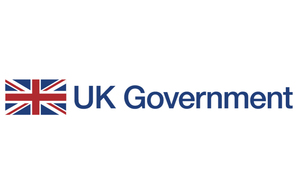Treasury Minister commends energy innovations towards Net Zero
- Treasury Minister Kemi Badenoch sees government and private investment in the Green Recovery paying off during visit to the Midlands.
- Severn Trent’s Innovative waste process is working to combat emissions and creating green jobs.
- Government’s Plan for Jobs in action as Severn Trent offer additional 500 young people placements and opportunities this year.
Kemi Badenoch toured Severn Trent’s new state-of-the-art thermal hydrolysis plant, just outside Coventry, which creates green energy from waste and supplies gas straight to the grid.
The Minister heard how the company will also be investing £566million in a Green Recovery programme to help create up to 2,500 new jobs in the region.
These proposals include producing enough zero carbon water to supply a city the size of Leicester, creating bathing rivers close to one million homes and reducing the risk of flooding for 90,000 properties using nature-based solutions.
During her visit, she also met some of the new engineering graduates and summer interns and saw the Government’s Kickstart programme in action at Severn Trent’s brand-new technical training academy when she met some of the young people the water company has created job placements for through the scheme.
Speaking after the visit, Treasury Net Zero Minister Kemi Badenoch said:
I was delighted to visit Severn Trent and see the innovation to stop pollution and deliver Net Zero is already taking place.
They are also leading the way out of the pandemic by delivering their Green Recovery programme which supports their ambitious net zero plan by 2030 and creates new jobs and world-class training via the government’s Kickstart scheme.
Severn Trent’s state of the art training facility is part of the company’s wider £10 million investment in skills and training for its people and communities.
The company is aiming to create 500 placements this year, to provide useful training and experience to help young people with securing permanent jobs in the future.
Liv Garfield, Severn Trent CEO, said:
We know that across our region, coronavirus has affected peoples careers and jobs, so we’re really excited to be able to share our brand new Academy, so we can do our bit to help provide valuable skills and opportunities to support our customers and communities.
It’s one of the key ways we, as a responsible company, can help make a real difference.
Whether it’s through joining our Kickstart or apprentice programme, or helping us to deliver our ambitious Green Recovery programme- we’re absolutely committed to supporting our people, our customers and their communities however we can by providing opportunities for people to develop skills and careers.
So far, 50,000 Kickstart jobs have been started by young people across the country in a range of different sectors, including construction, creative and media, and health and social care.
The landmark scheme, which gives 16-24-year olds at risk of long-term unemployment a future of opportunity and hope by creating high-quality, government-subsidised jobs across Great Britain, was launched last September as part of the Government’s Plan for Jobs.
Magdalena Nenova, Junior Designer and Marketing assistant on the Kickstart programme said:
My Kickstarter placement has allowed me to develop the skills, knowledge and experience I need to help me with my career, as I aspire to work in the creative industry in advertising and marketing.
Through my placement I’m responsible for developing and creating storyboards for social media content, supporting our marketing team.
Since joining, I’ve loved the challenge of a new job and being part of a company like Severn Trent. There’s been great support within my team, and I’ve learned so many new skills, and gained so much experience that will really help me as I develop my career.
Further information
Pictures from the visit are available on HMT’s Flickr Page

